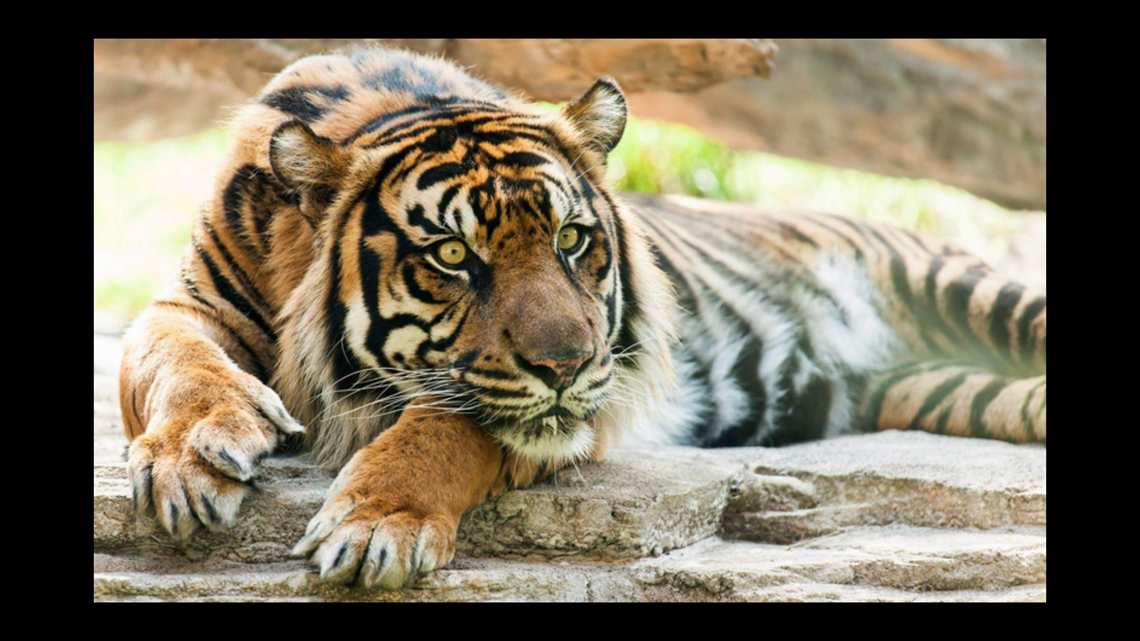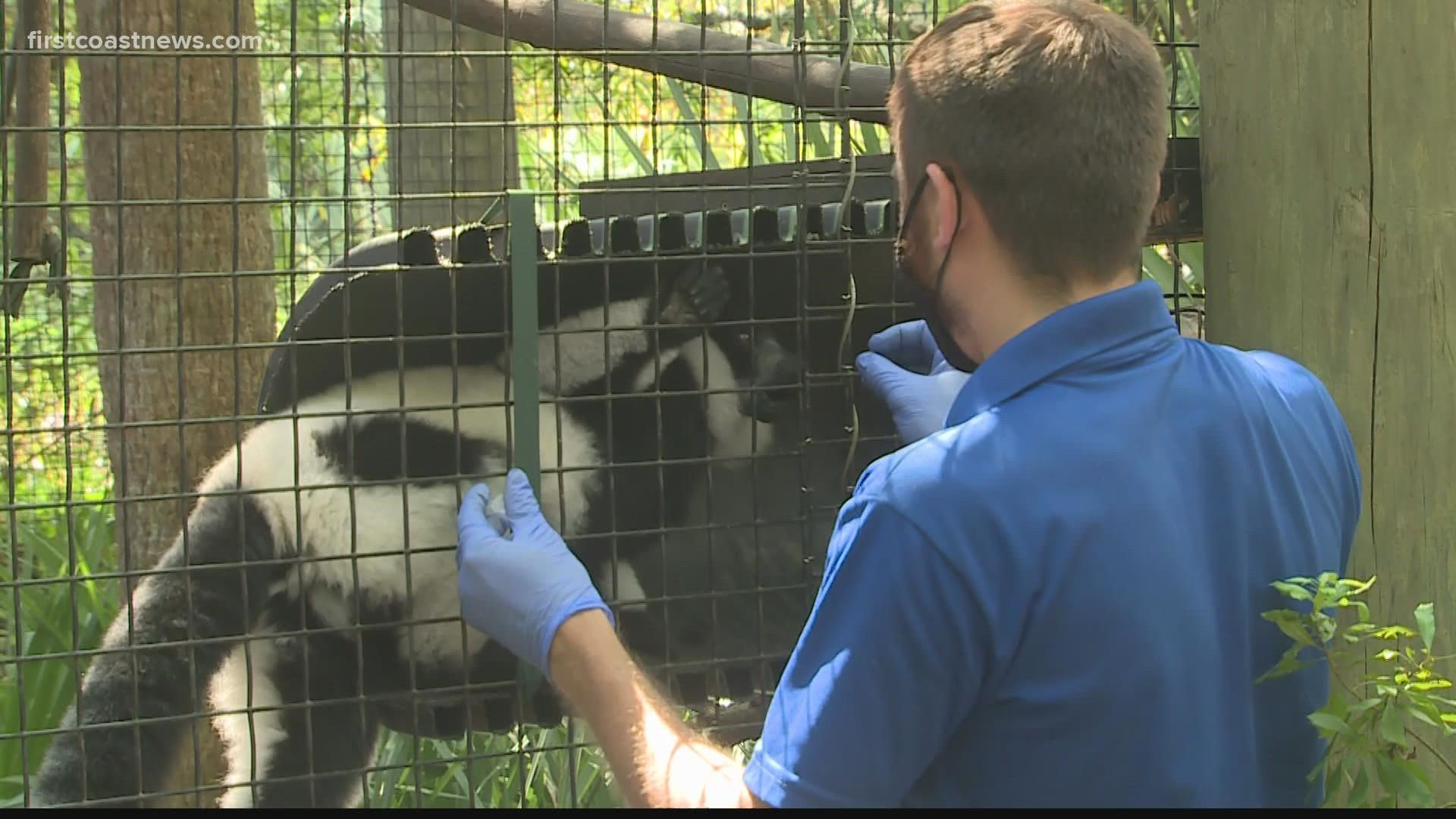JACKSONVILLE, Fla. — "We're very excited we finally have vaccines available for the animals," Dr. Yousuf Jafarey, a veterinarian at the Jacksonville Zoo and Gardens, said.
The date isn't in concrete yet, but probably in October, the zoo will begin giving COVID-19 vaccinations to about 200 high-risk animals.
"We're actually part of the clinical trials for the roll-out," Dr. Jafarey said.
Dr. Jafarey said the vaccines come from Zoetis, the veterinary division of Pfizer. The vaccines will be given at no cost to about 80 zoos around the country, according to reports from National Geographic.
And how does an animal qualify as high risk? One factor is if their species has come down with the virus.
Let's take, for instance, gorillas.
In some other zoos, they've tested positive for COVID-19. In the past week, the Atlanta Zoo announced 18 of its gorillas tested positive, including Ozzie, the oldest gorilla on earth. Ozzie is 60.
Most often, COVID-19 causes a minor illness in animals. However, Dr. Jafarey says several dozen animals in zoos around the world are documented to have died from the virus.
What are the other reasons some animals are chosen for vaccinations and others aren't? In addition to documented cases of certain species contracting the virus, another factor looks at if the species is endangered or threatened.
Take lemurs, for example. Jacksonville Zoo trainer Tracy Fenn says only about 70-80 lemurs are in the U.S. and, in their home country of Madagascar, the population of lemurs is dwindling.

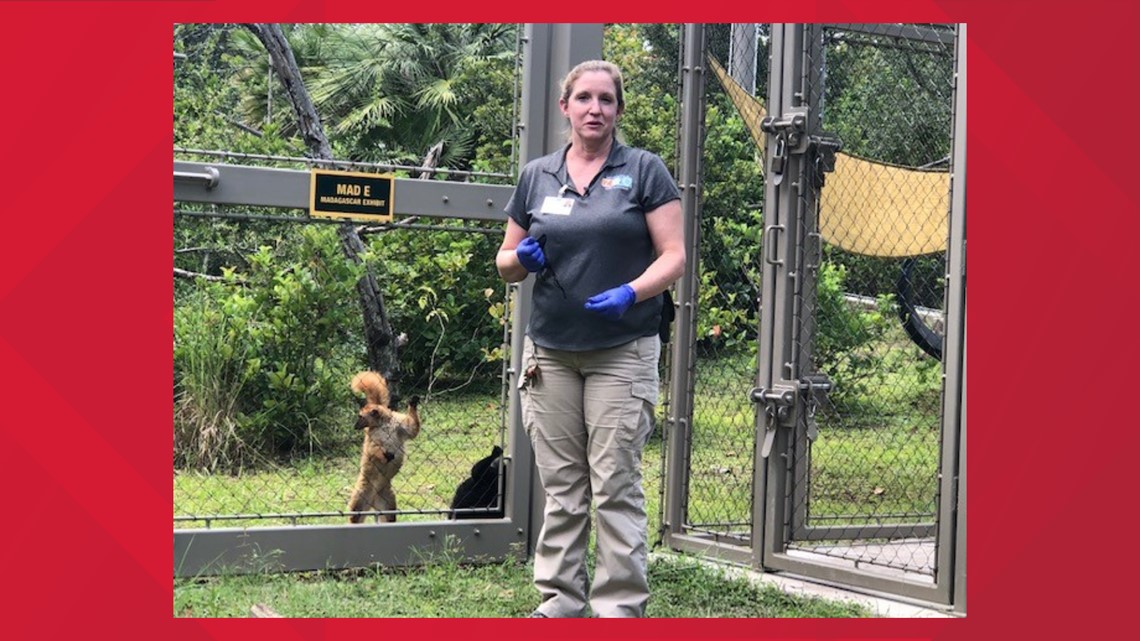
"So when you're talking about losing one or two in populations of less than a couple hundred of that species left on the planet, it becomes a real concern," Dr. Jafarey said.
He says early data shows the vaccine is safe and effective. It is not the mRNA vaccine that's given to people. It's designed only for animals.
On the high risk list at the Jacksonville zoo are the big cats, such as tigers, jaguars, lions and bobcats. Also on the vaccine list are gorillas and bonobos, about 100 bats, and hoofstock, Dr. Jafarey explained. Birds are not considered high risk because they don't contract COVID-19.
But how do you keep an animal calm during a vaccination so he doesn't jerk away and not get the whole dose?
Step one is to reward him with food. Take Potter, a ruffed lemur, with black and white coloring. Potter learns when he goes into a "sleeve,' which looks like a box up in a tree, he gets grapes. And Potter loves grapes.

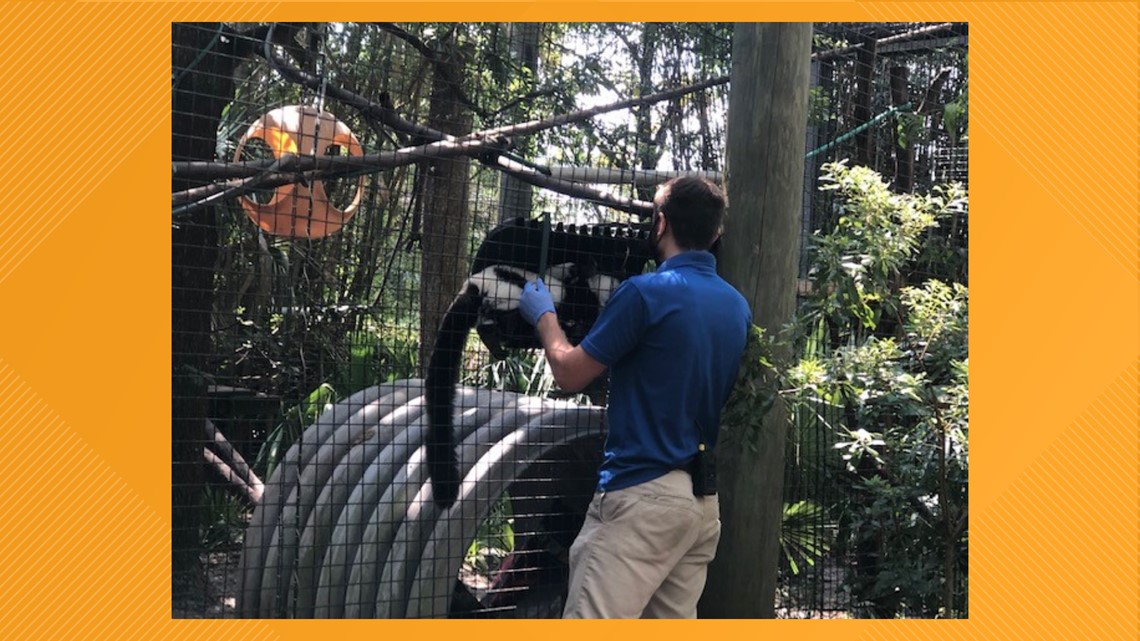
The trainers practice this positive reward system over and over.
The next step is for the trainers to gently poke Potter on the fleshy part of his hip, where he'll get the shot. He eventually gets used to being poked with a human finger and doesn't object because, after all, he's munching on sweet grapes.
Then the trainer uses a blunt needle to poke him. It doesn't penetrate his skin.
After much practice, Potter is ready.
"The most you practice, the better they're going to do when it's time for D-Day, time for the shots," Fenn said.

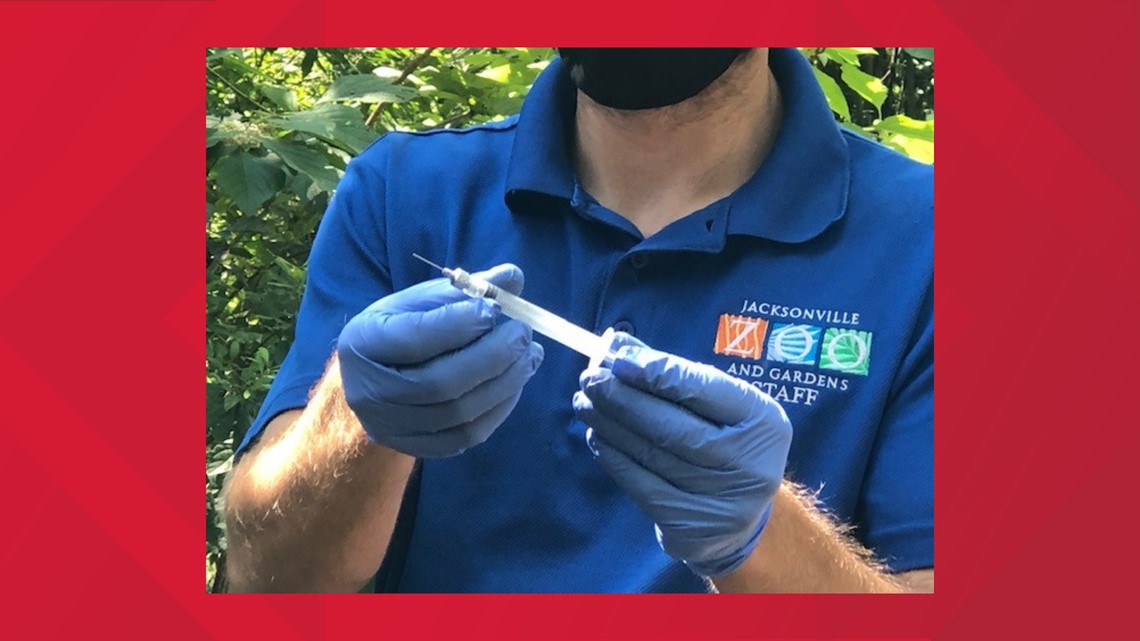
Fenn and Dr. Jafarey both say they love animals and animal conservation.
A challenge may come when the animals have to get a second dose, but the hope is the food rewards will still kick in. If not, the animals can be darted, but Fenn says that's a choice of last resort.
"We'll all breathe a sigh of relief once our animals have some degree of protection," Dr. Jafarey explained.
And if this makes you wonder about your dog or cat at home, experts say vaccines don't appear to be necessary for them. The theory is their immune systems -- because of genetics -- operate differently and protect them from COVID-19 in most cases, although a few fatal incidents have been reported across the globe.
So far the Jacksonville Zoo says it's had no positive cases of Covid among its animals.

